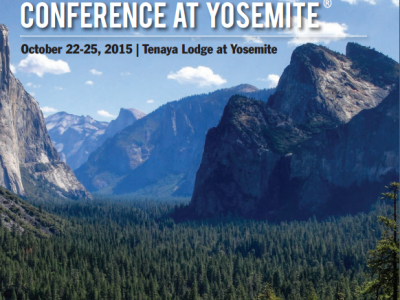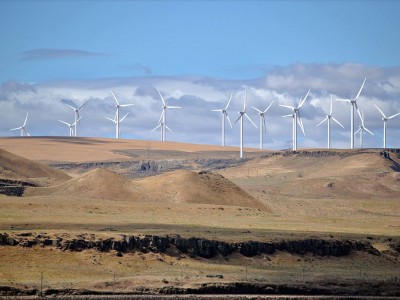General
Our Mental Models of Climate Change
How did “Collective Action” turn into “No Action”?
In discussions of how to cut global greenhouse-gas emissions, one of the first things you usually hear (often the very first) is that cutting emissions is a global collective-action problem. To wit: it’s crazy for California (or the United States) to cut unilaterally, because it only works if everyone does it. Or more sharply, we …
Continue reading “Our Mental Models of Climate Change”
CONTINUE READINGVolkswagen
What Does That Name Mean Now?
Stunning. But not shocking. That was my reaction to the massive fraud admitted by Volkswagen recently. Stunning in its sheer size and reach; half a million cars in the United States and another ten and a half million globally. Yet not very surprising given the fact that use of mechanical and digital cheat devices has …
CONTINUE READINGAnti-CEQA Lobbyists Turn to Empirical Analysis, But Are Their Conclusions Sound?
Influential Attacks on California’s Environmental Impact Law Aren’t Supported By the Data
Every August, as the California legislative session comes to a head, lobbyists attempt to gain support for dramatically scaling back California’s landmark environmental law, CEQA (the California Environmental Quality Act). This year was no exception. Last month, the law firm Holland and Knight, which has been a leading force on this issue, issued a new …
Continue reading “Anti-CEQA Lobbyists Turn to Empirical Analysis, But Are Their Conclusions Sound?”
CONTINUE READINGPope Francis Goes to Washington
What he said and didn’t say
Pope Francis arrived in Washington, D.C. on Tuesday to begin a much anticipated trip to the United States. While here, the pope will visit DC, New York City, and Philadelphia. Pope Francis, a former chemist, has gained much attention for his calls for action on climate change, in addition to his focus on inequality and …
Continue reading “Pope Francis Goes to Washington”
CONTINUE READINGCan We Trust the Science? The Challenge of Irreproducible Results
In the peer review process, articles submitted to scientific journals are sent to experts in the field who then assess the methodology, results and conclusions. Based on their feedback, authors often revise and re-submit, publishing an improved article as a result. Peer reviewers rarely attempt the actual experiments described in the paper. Irreproducible results are …
Continue reading “Can We Trust the Science? The Challenge of Irreproducible Results”
CONTINUE READINGRegistration Opens for 2015 Yosemite Conference–The Nation’s Top Environmental Law Event
This Year’s Yosemite Conference Promises to Continue a Tradition of Excellence
Registration is now open for the 2015 edition of the State Bar of California’s Environmental Law Conference at Yosemite. That conference, held each fall, is unquestionably the premier environmental law-related event in California. I would go so far as to argue that it’s actually the top such program in the entire United States. The Yosemite Conference …
CONTINUE READINGAnd a Child Shall Sue Them: Ambitious New Climate Lawsuit Filed Against Obama Administration
Will This Litigation Be More Successful Than Earlier, Related “Atmospheric Trust” Lawsuits?
Late last week, attorneys representing children from around the nation filed a provocative new lawsuit in federal court, arguing that the Obama Administration is violating the children’s constitutional rights by not taking far more dramatic steps to curb greenhouse gas emissions and address climate change concerns. The newly-filed complaint in the lawsuit, Juliana ex rel. …
CONTINUE READINGCoal States File Premature Petition to Block Clean Power Plan
AGs Sue For Tactical and Political Reasons Even Though Their Legal Case is a Loser
Attorneys General from 15 states, led by West Virginia, filed a petition in federal court yesterday to block the Clean Power Plan (CPP) from going into effect. The filing seems to be more tactical and political than a serious legal claim: the Environmental Protection Agency has yet to publish the rule in the Federal Register …
Continue reading “Coal States File Premature Petition to Block Clean Power Plan”
CONTINUE READINGU.C. Campuses Top Sierra Club’s “Cool Schools” Rankings
U.C. Irvine, U.C. Davis Rank 1 & 2 as Nation’s Greenest University Campuses
The Sierra Club has released its latest rankings of the “greenest” colleges and universities in the United States, titled “Cool Schools 2015.” The University of California fares extremely well in that survey, with four of its campuses placing in the top 10 of the Sierra Club poll. U.C. Irvine nabbed the top spot in the …
Continue reading “U.C. Campuses Top Sierra Club’s “Cool Schools” Rankings”
CONTINUE READINGPolitics v. Legality and the Clean Power Plan
EPA’s Final Plan Changes State Targets, With New Winners and Losers
When the President released the final version of the Clean Power Plan last week, it contained a number of big alterations to the draft plan. One of the most significant changes was the way each state’s greenhouse gas emissions target was calculated. The bottom line is that — generally — states more heavily reliant on …
Continue reading “Politics v. Legality and the Clean Power Plan”
CONTINUE READING











